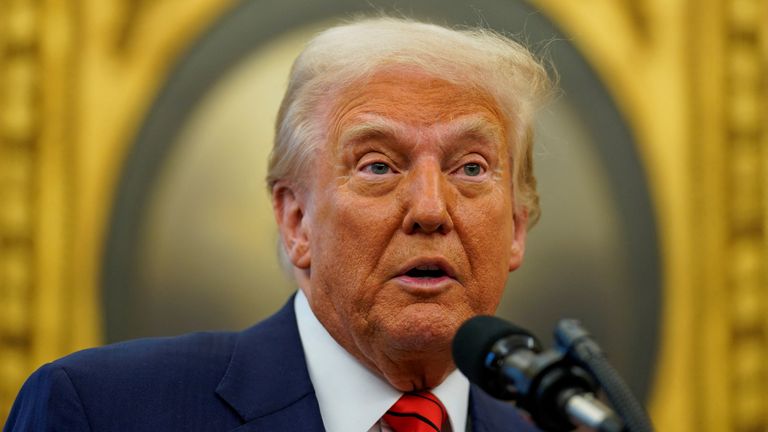Nigeria will now face a 15 per cent tariff on its exports to the United States following the launch of sweeping new trade measures by U.S. President Donald Trump, marking the latest escalation in what is already being described as a global trade war.
The policy, announced by the White House, imposes a baseline 10 per cent tariff on all imports into the U.S., alongside higher, country-specific duties. Nigeria is among dozens of countries targeted with additional levies, with its exports now subject to a 15 per cent rate.
Under the new trade regime, U.S. tariffs vary widely from 10 per cent on some countries like Canada for certain products, to as high as 50 per cent on Brazilian goods, and more than 40 per cent on imports from nations such as Syria and Myanmar.
The Trump administration said the measures are intended to protect U.S. industries, reduce trade deficits, and counter what it calls “unfair trading practices.” However, analysts warn the move could disrupt global supply chains, trigger retaliatory tariffs, and strain diplomatic relations.
For Nigeria, the new tariff threatens to impact key export sectors such as oil, agricultural produce, and manufactured goods, potentially reducing competitiveness in the American market. Trade experts have called on the Nigerian government to explore new markets, strengthen regional trade agreements, and engage diplomatically with Washington to mitigate the economic fallout.
The policy took immediate effect, with some agreements, including existing U.S.-China arrangements, extended temporarily through executive orders. Other countries affected include Ghana, South Africa, India, and members of the European Union, many of which are already considering reciprocal measures.





